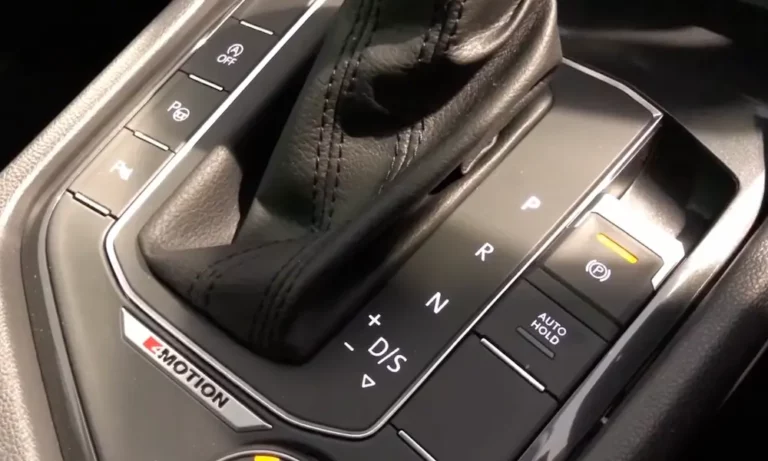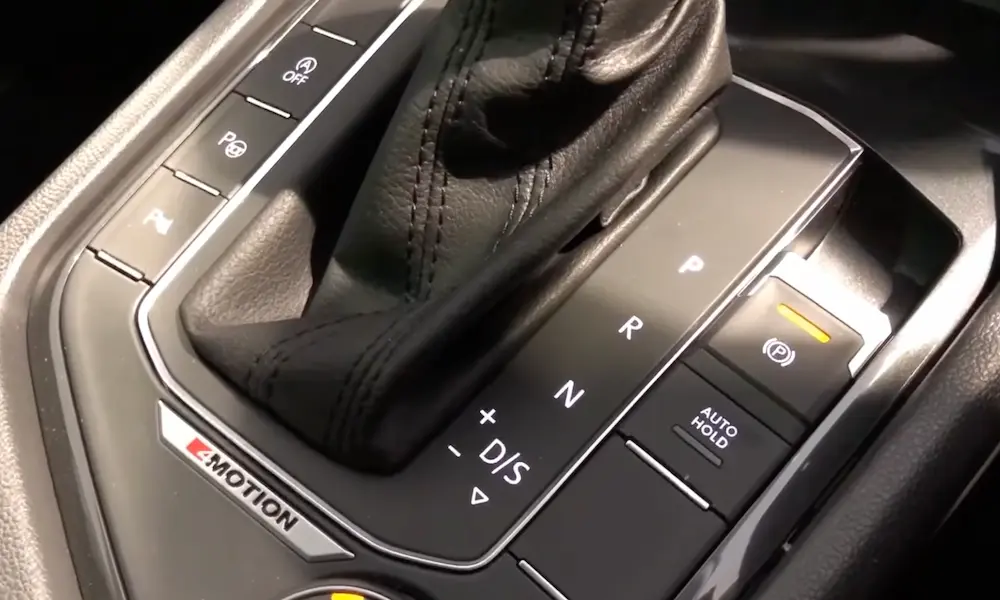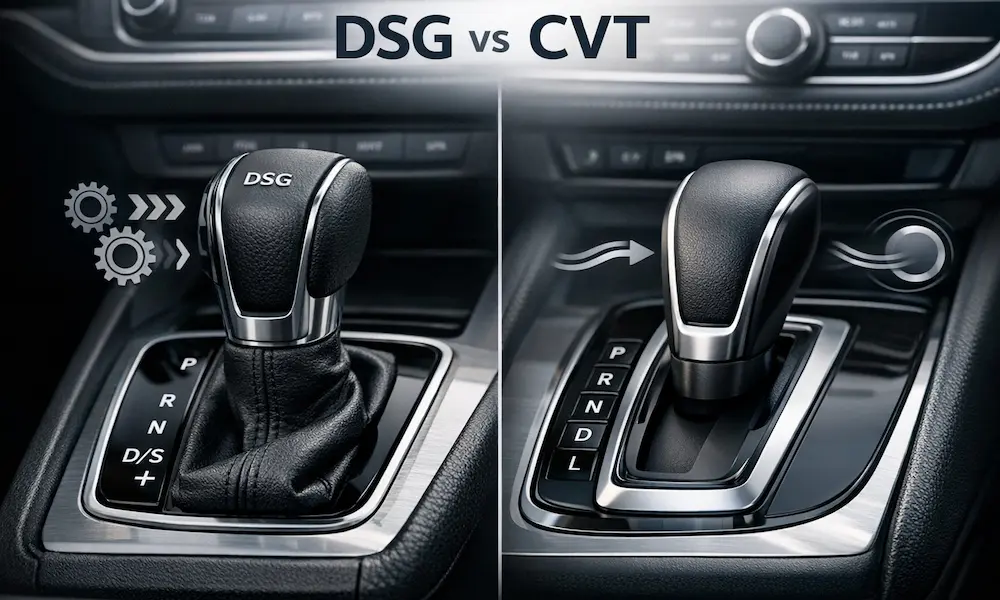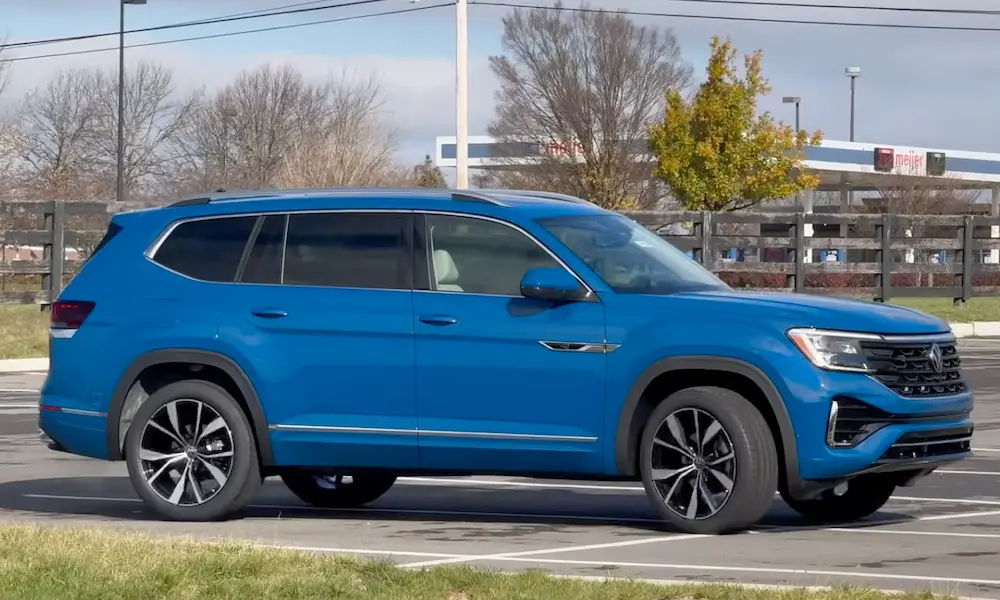Experiencing trouble with your VW’s DSG transmission? Understanding these intricate dual-clutch systems is key to solving issues like clutch wear or lag. When your car hesitates, you can find comfort in knowing solutions are just a read away. Learn the ins and outs of the Direct Shift Gearbox and how prompt attention might save you a trip to the mechanic. Dive in to keep your drive smooth and hassle-free.
Understanding DSG Technology
The Direct-Shift Gearbox (DSG) is a sophisticated dual-clutch system used in cars manufactured by the Volkswagen Group, including brands like Audi, Seat, and Skoda. Let’s explore its key features, the different types of DSG systems, and how it compares to traditional transmissions.
Basics of DSG Functionality
A DSG gearbox uses two separate clutches to handle even and odd gear shifts. This unique setup allows for faster and smoother gear changes compared to traditional transmissions. As you drive, one clutch stays engaged with the current gear, while the other preselects the next gear. This minimizes delay and makes your driving experience much smoother.
The system is designed to combine the efficiency of a manual gearbox with the convenience of an automatic. This provides both quick shifts and a more engaging drive, making DSGs popular in performance-oriented vehicles. Understanding how these gearboxes function is key to appreciating their advantages.
Types of DSG: Dry vs Wet Clutch
DSG transmissions come in two main types: dry clutch and wet clutch. Dry clutch DSGs are typically found in smaller, less powerful cars. They use a simpler design but can face issues with overheating if driven aggressively.
Wet clutch DSGs feature clutches immersed in oil, helping manage temperature and friction better. They’re often used in more powerful vehicles and offer greater durability and reliability. When choosing a DSG vehicle, you’ll want to consider which type best suits your driving style and needs.
Comparing DSG to Traditional Automatic Transmissions
Unlike traditional automatics that rely on a torque converter, DSGs use dual clutches for gear shifts. This leads to quicker changes and better fuel efficiency. You might appreciate how a DSG can predict your driving behavior and preselect gears accordingly, reducing lag times.
While standard automatics provide smooth shifts, they might not offer the same level of driver engagement. DSGs blend the best of both worlds, offering manual-like precision with automatic-like ease, making them an attractive option if you enjoy dynamic driving experiences.
Advantages of DSG in Performance and Fuel Efficiency
DSG gearboxes shine in both performance and fuel efficiency. The quick gear shifts improve acceleration, making your car feel more responsive. This immediate power delivery is a key benefit for those who appreciate spirited driving.
In terms of fuel efficiency, DSGs are designed to optimize engine performance. By maintaining optimal RPM levels and reducing wasted energy during shifts, they contribute to better mileage. If you drive a Volkswagen, Audi, Seat, or Skoda, you may notice this balance of power and efficiency in everyday driving scenarios.
Common DSG Transmission Problems
When dealing with DSG transmission issues, several key areas need your attention. You’ll find that problems often arise from the mechatronic unit, clutch, bearings, solenoid valves, and sensors.
Mechatronic Unit Failures
The mechatronic unit acts as the brain of your DSG transmission. It’s responsible for managing gear shifts. Failures in this unit can lead to transmission problems. You might notice warning lights on your dashboard or experience erratic gear changes.
A faulty mechatronic unit can trigger error codes. Sometimes, recalibrating the software helps, but it may also require complete replacement if there’s hardware damage. Regular checkups can prevent these issues from escalating.
Clutch Issues and Wear
The DSG transmission uses two clutches working together. This arrangement can lead to excessive wear over time, especially in older models. Worn clutches can cause hesitation in gear shifting or complete failure.
You’ll likely notice unusual noises or difficulty in gear engagement. Inspecting and maintaining clutches is crucial to avoid costly repairs. Replacing worn clutches early on can save you from major downtime.
Bearing Wear and Noisy Operations
Bearings in the transmission can also wear out, causing noisy operations. You might hear grinding sounds when shifting gears, which indicates bearing issues. This wear is more common in earlier DSG models, particularly those produced before 2010.
Regularly listen for unusual sounds as they can indicate when bearings need attention. Addressing these problems early can prevent further damage to the gearbox and other components, enhancing the vehicle’s longevity.
Solenoid Valve Failures and Hydraulic Pressure Issues
Solenoid valves regulate hydraulic pressure in the DSG system. Failures here can lead to insufficient pressure, affecting gear shifting smoothness. You might encounter transmission warning lights on your dashboard.
Hydraulic pressure issues are tricky to diagnose without professional help. They require careful inspection to identify the exact problem area, potentially involving solenoid replacement or system flushing.
Sensor Failures and Electrical Glitches
Sensors in your DSG transmission monitor and convey information to the control unit. When sensors fail, they send incorrect data, resulting in transmission problems. Electrical glitches may cause the check engine light or other warning lights to activate.
Identifying faulty sensors involves analyzing error codes with diagnostic tools. If you notice dashboard warning lights frequently, ensure all sensors are functional and properly connected to avoid miscommunication within the system.
Troubleshooting and Repair Options
When dealing with Volkswagen’s DSG transmission problems, taking the right steps can help pinpoint the issue and decide on the best repair path. You can save time and money by knowing what to check first, when to call in the professionals, and weighing the benefits of DIY vs. expert repairs.
Initial Troubleshooting Steps
Start by checking transmission fluid levels. Low levels can cause various problems. Next, listen for unusual noises when shifting, which may indicate mechatronics unit or clutch packs issues. A diagnostic scan for error codes can help identify problems, such as with the Transmission Control Module (TCM).
Inspect the valve body and solenoid valves for signs of wear. These are common culprits in shifting issues. If the DSG issues persist, it may be worth looking into the condition of the gearbox repair needs.
When to Visit a VW Dealer or Specialist
If basic troubleshooting does not resolve the issue, consulting a VW dealer or specialist is wise. They have specialized tools and knowledge, especially for complex components like the mechatronics unit. When facing persistent error codes or severe transmission slippage, professional assistance is crucial.
Major transmission repairs often require specific expertise that only a trained technician can provide. Frequent visits for minor issues might indicate a larger underlying problem that needs professional inspection.
Pros and Cons of Professional vs DIY Repairs
Professional Repairs:
- Pros: Guaranteed work quality and access to specialized tools.
- Cons: Can be costly and time-consuming.
DIY Repairs:
- Pros: Cost-saving if you have mechanical skills and some repairs, like updating the TCM or replacing fluid, can be simple.
- Cons: Risk of improper repair if not experienced, potentially leading to bigger issues.
Choosing between these options depends on your confidence, the complexity of the issue, and your budget. For extensive issues, like those involving the mechatronics or clutch packs, professional help is often the best route.
Maintenance and Prevention
Taking care of your DSG transmission is key to preventing costly repairs. Regular service, understanding wear and tear, and following best practices can extend its lifespan.
Routine Service Intervals for DSG
Regular maintenance is crucial for your DSG transmission. You should change the transmission fluid and oil filter every 40,000 miles. This helps maintain optimal clutch engagement and smooth gear shifts. Regular check-ups can catch potential issues early. Check your dual-mass flywheel during these intervals to ensure it’s working well. Following service schedules is an essential part of keeping your transmission in top shape.
Best Practices for Extending the Life of Your DSG
Driving habits greatly affect the lifespan of your DSG transmission. To avoid strain, slowly increase speed instead of sudden accelerations. Keeping your vehicle’s software up-to-date is also important, as software updates can enhance performance. Avoiding heavy loads and towing can decrease stress on the transmission. When you follow these practices, you’re likely to experience fewer transmission issues and enjoy a smoother ride.
Understanding and Managing Wear and Tear
Wear and tear are natural for any vehicle part, including your DSG transmission. Preventive maintenance is key to managing this. Listen for strange noises, as they may indicate issues like worn clutch components. Keeping track of your vehicle’s performance can help you identify patterns of wear. Regular inspections from a professional can also detect any significant wear that may need attention. Identifying signs early will help avoid bigger problems later.
Ownership and Warranty Considerations
When dealing with a VW DSG transmission, it’s important to understand what your warranty covers, how to handle service and repairs, and the impact on resale value. Knowing these can save you money and stress over the life of your vehicle.
Understanding the VW Warranty for DSG
Volkswagen’s warranty for DSG transmissions typically covers specific components for a set period or mileage. Knowing the details of this warranty can help you make informed decisions. The coverage may include major parts of the automatic gearbox, like the clutch and mechatronics.
Review your warranty documentation carefully. It’s crucial to have service records up to date to validate your warranty claims. Familiarizing yourself with these terms can ensure you benefit fully from what VW offers.
Dealing with Warranty Service and Repairs
When your DSG transmission needs service, you’ll want to contact your VW dealer. It’s advisable to book an appointment as some repairs can take time, especially if parts need ordering. Bring your service records along to streamline the process.
At the dealership, make sure you understand what’s covered and what isn’t. Sometimes, customers face out-of-pocket expenses for parts not under warranty. Staying informed helps in managing these situations without unexpected costs.
Resale Value and DSG Transmission
The state of your DSG transmission can affect the resale value of your Volkswagen. Buyers often take a detailed look at the transmission’s condition. Regular services and maintenance can protect your car’s value.
For owners of TDI models with DSG, this is crucial. Buyers seek well-documented service histories. Keep your vehicle in top shape to ensure a better selling price should you decide to part with it. An understood and maintained transmission can prevent possible markdowns during a sale.











